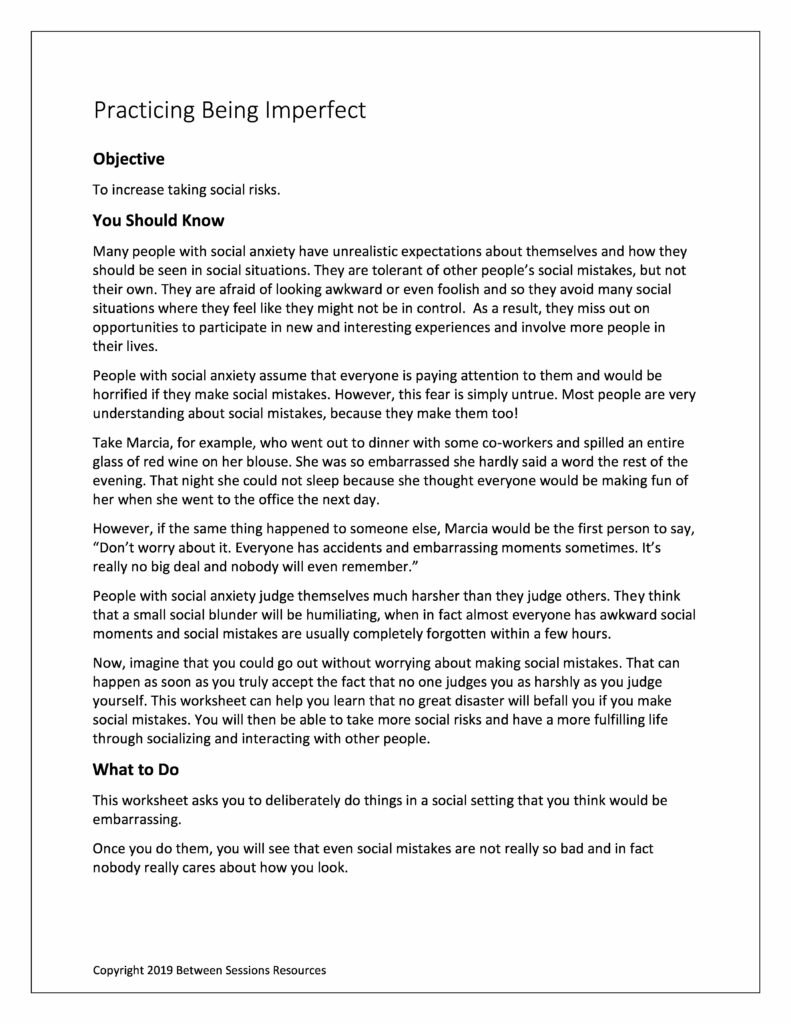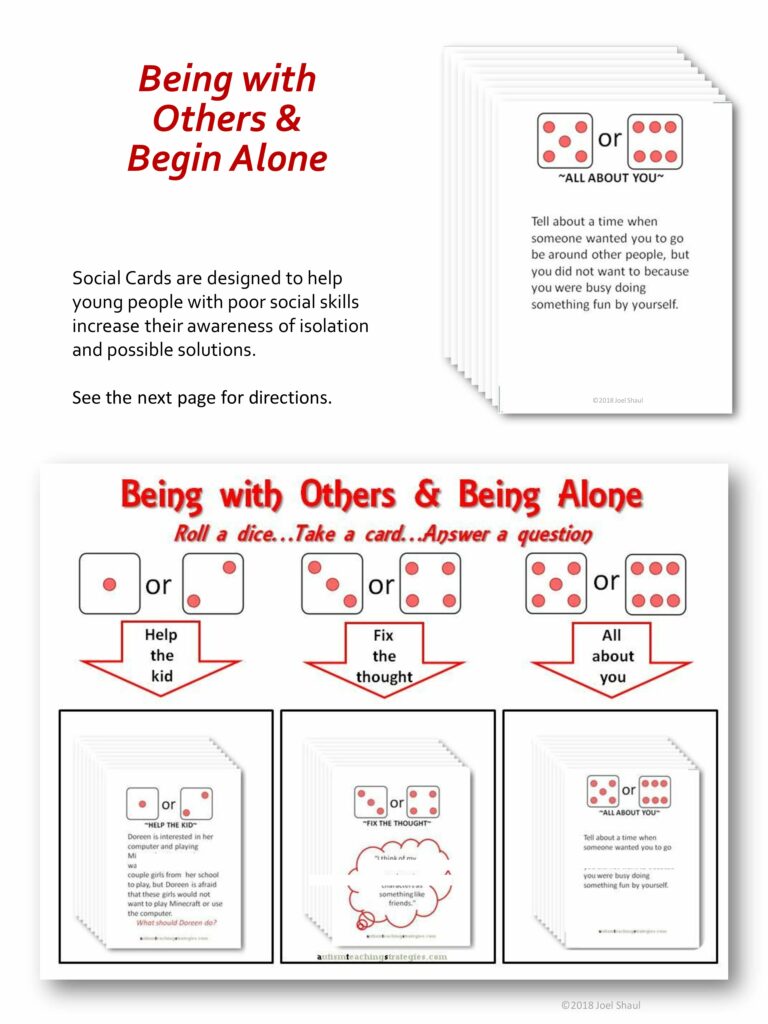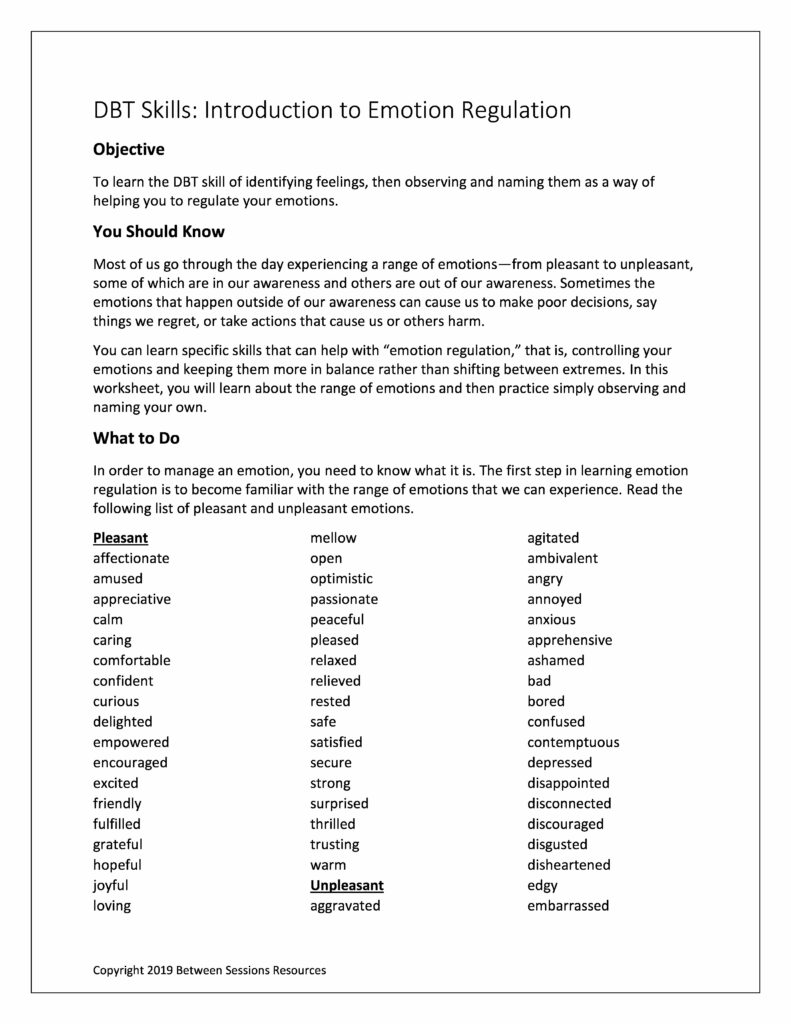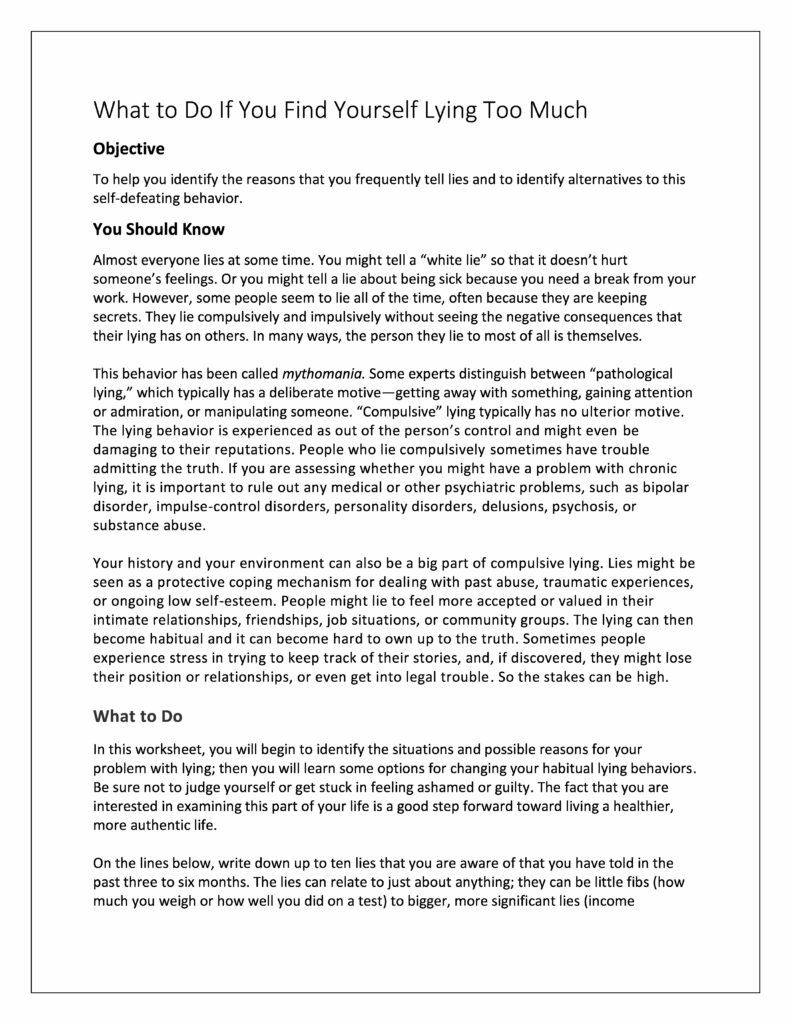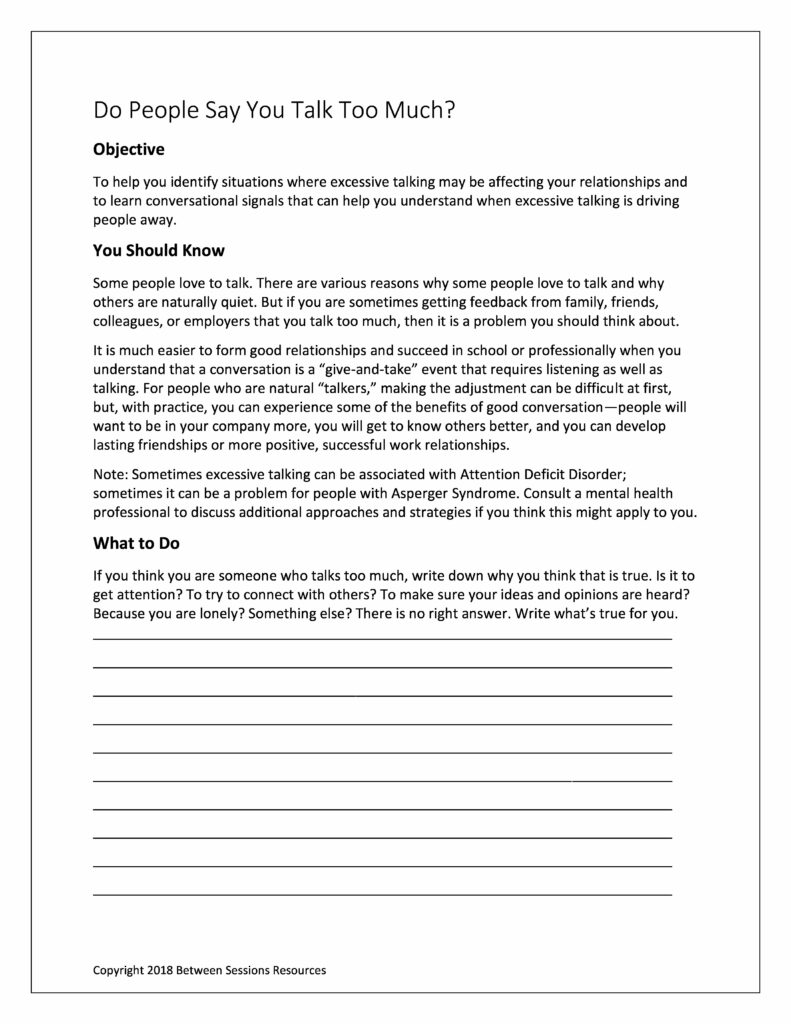This worksheet is designed to help people take more social risks. Many people with social anxiety dread that they will embarrass themselves in public. This worksheet asks them to choose three situations where they deliberately make a social mistake in order to see that others really don’t care. (social anxiety, shyness, thought distortion, exposure therapy, 0520)
This simple card game is designed to help children and younger teens understand the consequences of being alone. There are three types of cards. The first type of card encourages children to make pro-social choices. A second card type helps children develop more pro-social thinking. The third type of card asks children to talk about experiences being alone and being with others, opening up conversations about what they can do differently. (Asperger Syndrome, ASD, Autism Spectrum Disorder, 0519)
This cartoon shows the consequences of not keeping a secret, and asks teens to discuss a situation when someone they know has failed to keep a secret. (0519)
This worksheet is designed to help people learn the DBT skills of identifying feelings, then observing and naming them as a way of helping to regulate emotions. (emotional regulation, depression, bi-polar disorder, 0419)
This worksheet is designed for people who lie frequently and who wish to find a positive alternative to this behavior. (addiction, 0319)
This worksheet is intended to help people who get constant feedback that they talk too softly. It helps people consider the reasons they talk softly and then take steps to change the way they communicate. (social anxiety, speech and language, 0219)
This simple Mood Diary can help clients keep track of their predominant mood each day, what influenced their mood, and what they did in response to their mood. (0219, emotions, log)
This worksheet is designed to help people identify situations where excessive talking may be affecting their relationships and to help them learn conversational signals that can aid in more appropriate give and take conversations. (ADHD, Asperger Syndrome, relationships, social skills, 0219)
This worksheet is designed to help people who are feeling depressed and even suicidal reach out to others and engage in social activities. (depression, prevention, social isolation, 0219)
This worksheet can be used with people who have social anxiety to help them overcome symptoms that may keep them from dating. The worksheet uses the principles of exposure therapy to help people address this problem. (0119)

